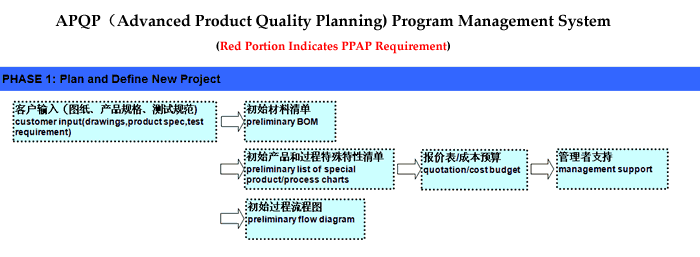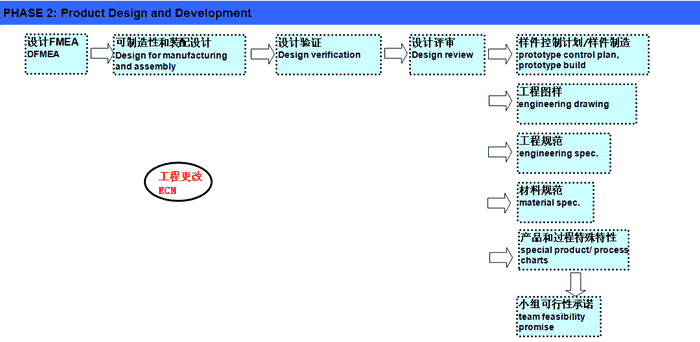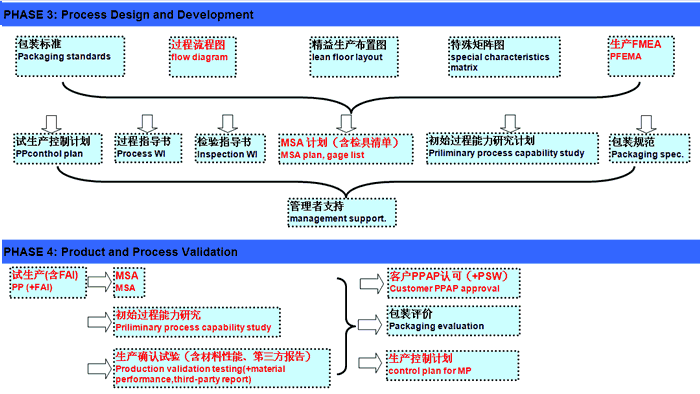|
Advanced Product Quality Planning (APQP) is a formal standardized and structured method of defining and implementing steps to produce a product that satisfies the customer. PPAP is a part approval process within APQP. PPAP is an acronym for Production Part Approval Process. Initially developed by AIAG (Auto Industry Action Group), PPAP has now spread to just about every other industry. PPAP is used to formally reduce risks prior to product or service release, in a team oriented manner using well established tools and techniques.
Phase 1
Plan & Define Program - determining customer needs, requirements & expectations using tools such as QFD review the entire quality planning process to enable the implementation of a quality program how to define & set the inputs & the outputs.
Phase 2
Product Design & Development - review the inputs & execute the outputs, which include FMEA, DFMA, design verification, design reviews, material & engineering specifications.
Phase 3
Process Design & Development - addressing features for developing manufacturing systems & related control plans, these tasks are dependent on the successful completion of phases 1 & 2 execute the outputs.
Phase 4
Product & Process Validation - validation of the selected manufacturing process & its control mechanisms through production run evaluation outlining mandatory production conditions & requirements identifying the required outputs.
Phase 5
Launch, Feedback, Assessment & Corrective Action - focuses on reduced variation & continuous improvement identifying outputs & links to customer expectations & future product programs.
Control Plan Methodology
discusses use of control plan & relevant data required to construct & determine control plan parameters stresses the importance of the control plan in the continuous improvement cycle.




|